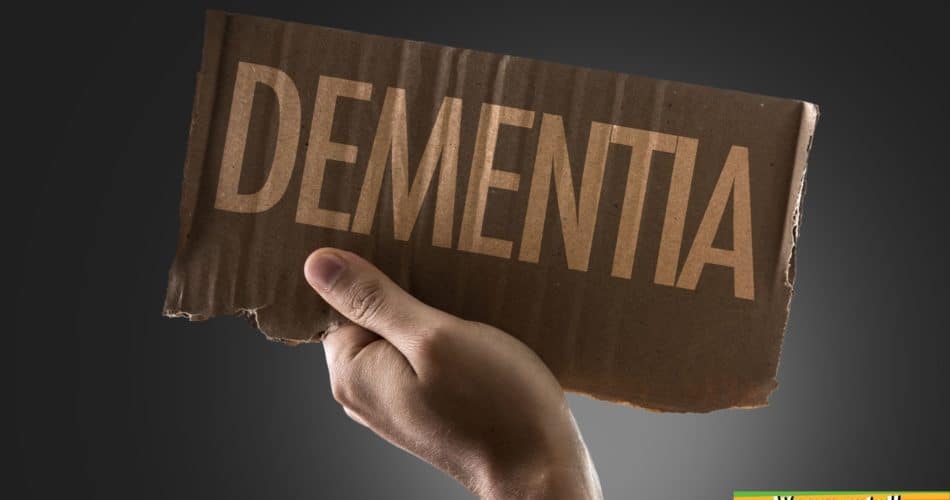Ever wondered what might happen if nerves in the brain started to degrade or get damaged with time? I guess it would leave some severe mental issues, one of which is dementia. It can reduce the ability of the patient of recognizing things or recalling even the most basic thing as one’s own language. The person suffering from mental problems needs twenty-four-hour attention as it might get tough for them to cope up with things.
What is it about?
Dementia nearly destroys the reasoning abilities of a person, and the person suffering from it is not capable of performing even the simplest tasks assigned to him/her, or even the daily rituals of life are a burden and might lead to situations that might not have a fruitful outcome.
We usually lose brain cells as we get older, but it is at a very agile rate and on a tremendous amount. It is noticed that with age, people might have minor symptoms of dementia. As it is widely seen, people over the age of 80 suffer these more often, but it is not due to ageing as many people are hitting a century with their age and still don’t have any symptoms of it.
It is also seen there are various types of disorders, and one of them is precisely more common in the middle-aged group and is known as a frontotemporal disorder.
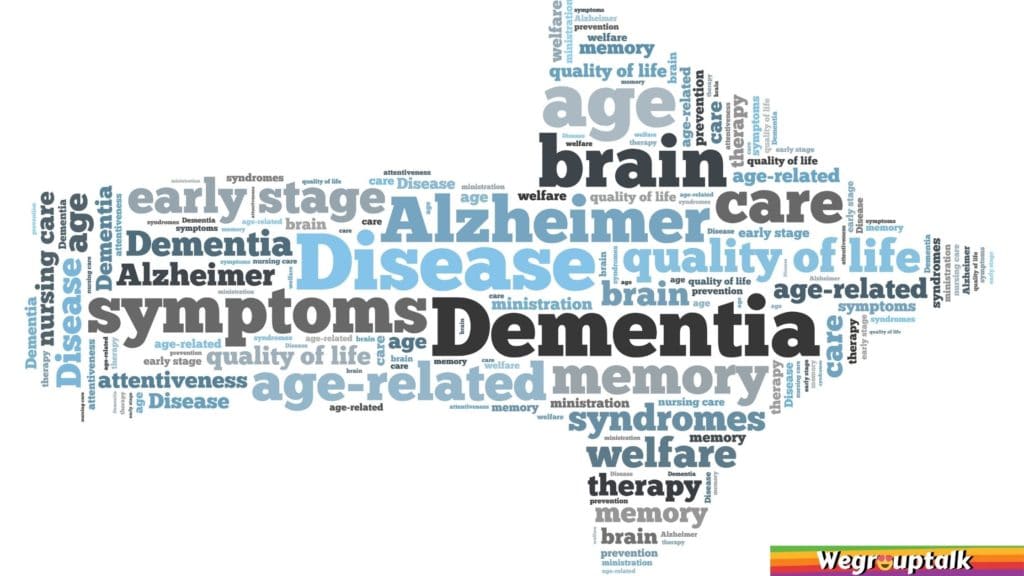
There is no discovered cure for dementia, and hence it makes the patients even more fragile. Thus it is advisable to give care and educate the bearer. The problems can also be tackled by regular exercising, if not entirely but they’ll make the patient feel better and it would be easier for the caregiver to help the person suffering.
According to the data collected in 2015, it is recognized that there were about 46 million people yet known who are suffering from dementia.
Types of Dementia
By now, it might have been quite evident that dementia is mainly caused due to damage to some brain tissues. There are mostly ten types of dementia that trouble patients and their family.
Alzheimer’s Dementia
Alzheimer’s disease is found to be the problem of almost 60-80 per cent of patients who have dementia. It is mostly seen in old adults and occurs due to the death of brain cells. It is seen similar to depression in its initial stages. Alzheimer’s can also be misdiagnosed in some elderly as it can be easily confused with depression.
With time as the Alzheimer’s gets into it’s later stages, people can experience mood swings and have trouble speaking and walking. The sad part here is the only way to truly diagnose Alzheimer’s disease is to examine their brain tissue after the patient’s death, so it is kind of out of the question. However, doctors can use various other mental ability tests to cross out other diseases on the list.
Vascular Dementia
Vascular dementia is the outcome of the reduced blood flow to the brain, and can also be the result of a stroke. It can happen gradually or in an instant. In an instant, for example, with a stroke or a heart attack, the chances of developing it are relatively higher. As during a stroke, the blood flow to the brain reduces, which leads to the death of specific tissues in certain parts of the brain, which ultimately leads to the death of some brain cells.
People with vascular dementia have problems in reasoning and with their memory. Like all the other types of dementia, the symptoms go unnoticed or can be assumed as something mild as stress.
Lewy Body Dementia
Dementia with Lewy bodies shares it’s symptoms with Alzheimer’s disease and occurs due to the deposit of protein in brain cells. This deposited protein retards the flow of signals in the brain and proves to be a hindrance in the proper functioning of the brain. The people suffering from Lewy bodies can fall asleep during the day unknowingly and mostly have trouble falling asleep during the night. They can also have visual hallucinations.
Lewy bodies dementia shares some of its symptoms from Alzheimer’s and Parkinson’s diseases. The patients here can have their hands trembling and trouble walking.
Parkinson’s Dementia
Parkinson’s disease has its symptoms recognizable in its early stages. This has problems with neurological systems of a person, and the initial signs are problems in movements. In Parkinson’s disease, the part of the brain called “substantia nigra” starts to die. Substantia nigrs produces a substance known as dopamine, and this dopamine is responsible for the smooth and coordinated muscle movement.
When the dopamine drops to 60-80 per cent of the value that should be present in the body, then the initial symptoms start to come into the limelight. The person might have confusing or frightening hallucinations. There are over 50,000 cases reported every year, and this is just in America. There is o cure for Parkinson’s disease, and the situation worsens over time.
Mixed Dementia
Mixed dementia is a term given to a patient who has more than one type of dementia, and according to various studies, it is pervasive and to such an extent that almost 45% of people have mixed dementia but do not know it. The symptoms of this type of dementia vary from person to person.
Hence, some people might have memory problems and disorientation earlier, and others might have mood swings and some behavioural changes. Like all the other types of dementia, most people will have trouble walking and speaking as time progresses.
Other Types of Dementia
- Frontotemporal dementia is a term used to refer to all the types of dementia’s with one thing in common, and that is the damage in the front and side part of the brain. These areas control the language and behaviour of a person, and it causes a loss of inhibitions and motivation.
- Creutzfeldt-Jakob disease is the rarest form of dementia, and according to a study, it has the fastest growth rate, which leads to the death of the people within a year of diagnosis.
- The Wernicke-Korsakoff syndrome is caused due to the bleeding in the lower section of the brain, which is caused by the deficiency of vitamin B1. It can be a result of chronic diseases or malnutrition.
- Normal-pressure hydrocephalus is the type of dementia that occurs due to the extra fluid in the brain which is used to provide cushion to the brain. It accounts for almost 5% of the total cases of dementia.
- Huntington’s disease is transferred in genes and can lead to the extent that troubled the patient with impaired movements such as jerking, difficulty in walking, and trouble swallowing.
How does it hit?
The most common symptom of dementia is the loss of memory, and it is literally possible for the patient to forget even the best memory of his/her life or even the daily chores that the person performs. It is widely seen that most of the dementia is slow and steady, and by the time one realizes to take action on it, things would have gotten bad enough for it to be cured.
It can include problems such as,
- Language problems
- Coping daily chores
- Eating
- Memory
- Wandering
- Visualization
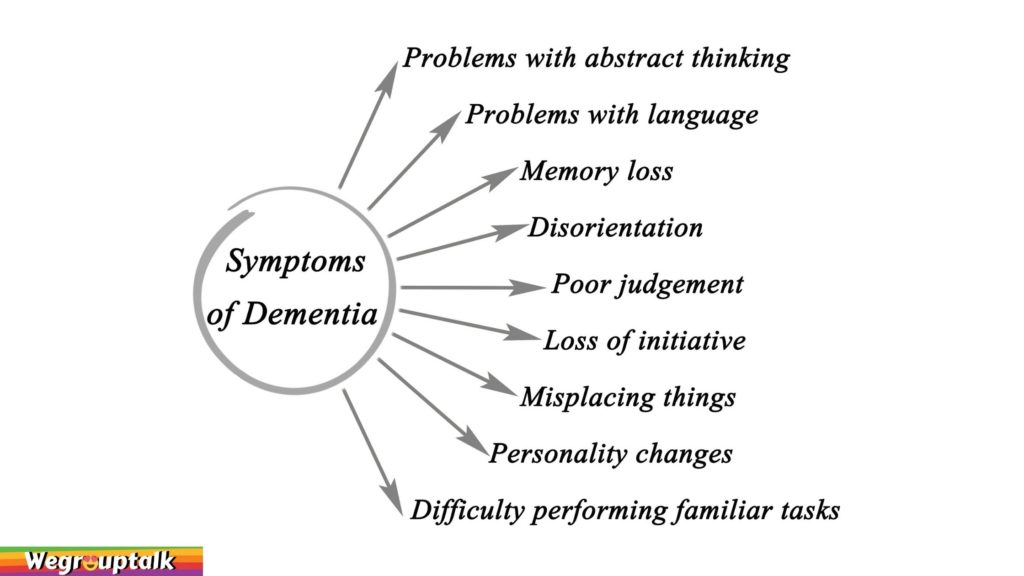
Dementia also bring various behavioural problems or various mental traumas such as
- Agitation
- Depression
- Anxiety
- Abnormal functioning of the body
- Easily getting irritated
- Delusions
These problems might reach to a different peak when they are put into certain conditions or are made to perform activities that are beyond their abilities; they turn to anger or crying. They either scream the hell out of the person persuading them to do a chore or crumple into a ball and weep until their eyes run dry.
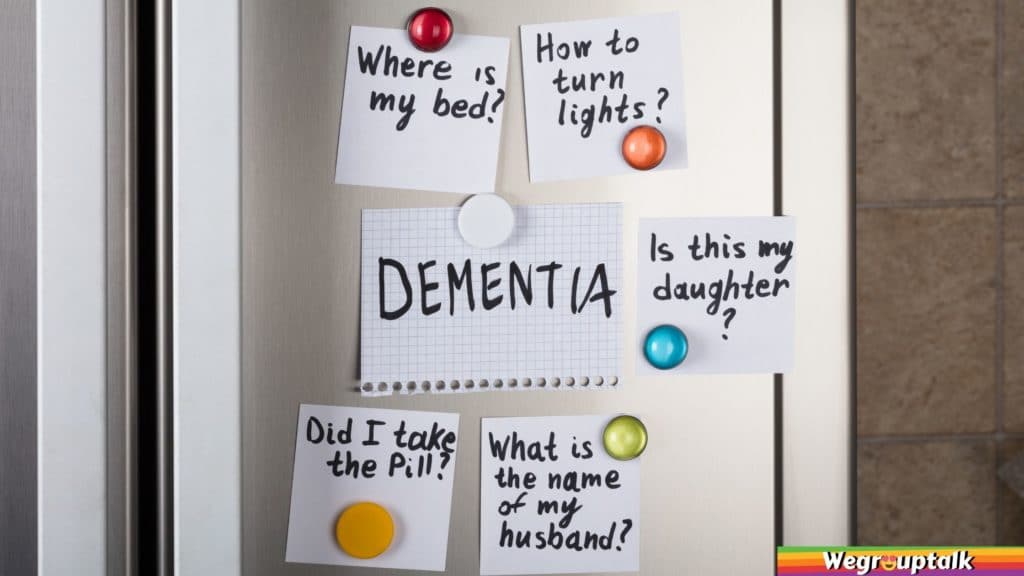
Different stages of Dementia
According to doctors and people working on finding a cure for this disease, it can be classified into four different stages.
Mild cognitive impairment:
This is the unsure stage of dementia that most people wave off blaming their age. This starts when people forget about faraway memories buried in the brain. Almost (65-75)% of people in this stage are further qualified to the next stage. They usually don’t have trouble doing everyday chores, and it is okay for them to live like that until it proceeds to the later stages.
Early stages:
In the early stages, the symptoms become noticeable and start interfering with the daily chores. In this case, the person might start forgetting things like doing dishes or locking the door, or might leave something in the oven, so he/she might need reminders to get through the day on their own. The first thing that strikes in this stage is the finances of the individual; he/she might be spending money and even forget the reason they spent it.
Middle stages:
In this stage, people need more help than simple reminders, as things might start to get worse. They may not be able to perform out of the house chores; however, they might still be able to do their own chores inside the house. They should not be left alone and should also need assistance in maintaining proper hygiene.
Late stages:
People in the later stages of dementia need proper health care and support. They need 24-hour supervision as it is really difficult for them to remember even the basic things of survival. They may even not remember things that might harm their body, such as hot flames or electric supply that might give them shocks of thousands of volts.
In this stage, the patients are most served liquified diets to make eating more comfortable, as they might even forget the way of eating and choke themselves to death.
Help?
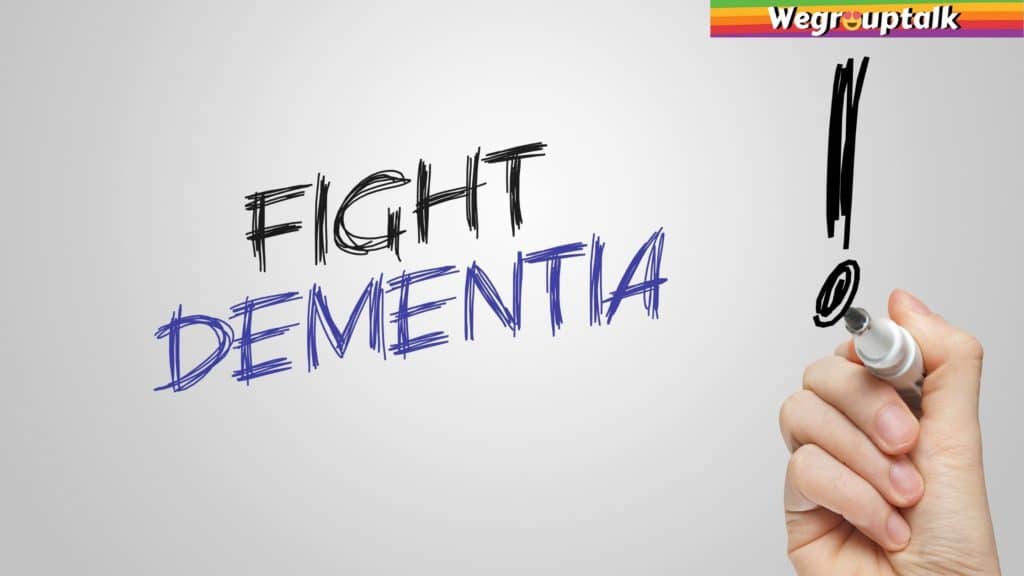
It is hard to diagnose a particular type of dementia with just its symptoms, as they may as well have way too many similarities. The treatment is done after studying the brain of the patient carefully, which is done by various brain scanning techniques such as brain autopsy.
Brain autopsy is rarely prescribed for the diagnosis because in normal cases, the symptoms must be a part of the person’s life for more than six months. It can be easily confused with delirium, which has similar symptoms and also with depression since people usually experience such things when they are depressed. Hence, the patients are taken through the screening of depression before going through any of the tests required to prove the existence of dementia. This is helpful as the patient might just be depressed and hence can be better again with practical help.
The Checks
The tests used to diagnose dementia consists of various mental ability or reasoning questions that help us know about the brain’s condition of the person being diagnosed and whether he can think reasonably or not. The most common form of this test is the mini-mental state examination, which has a mixture of reasoning and questions related to the daily activity of the person, successfully determining the ability of the person to determine his/her daily chores.
ALSO READ Happiness: An Elusive Art of Living
Also, there are various laboratory tests performed to clarify whether the bearer has any treatable disease which can get rid of by medicines and multiple treatments. Regular blood tests and various tests for the presence of suitable vitamins are conducted in a regular interval to determine or be sure whether the patient has had dementia or not. A CT scan or an MRI scan even if performed is of no use as they do not determine the metabolism changes in one’s brain and are of no help to diagnose dementia.
Hence it is highly advised for the patients to be taken through therapy, which is the only effective treatment we have. Various adult daycare centres and nursing homes assist patients in going through dementia. These are also helpful in the agitated behaviour of the patients due to the mixed hearing, language, and reasoning losses.
The person can be taken through the various treatments which are adopted by multiple treating centres such as the singing treatment which is believed to relieve the mental peace of the patient.
Prevention
It has been a keen observation that dementia can be prevented in approximately one-third of people by just treating the minor issues such as hearing loss, obesity, treating high blood pressure, and important of all treating depression which is a root of many major problems. The patients can be served with an early gluten-free diet, which might help in reducing the risk of dementia.
To be true, as mentioned above there aren’t any known medical solutions available for the treatment of dementia, and hence the physical and mental therapies are the only effective and available resources to treat the patients.
So it is widely suggested for the caretakers to help the patients with the disease by taking proper care and helping them by taking them through various therapies as suggested above.
FOLLOW US on INSTAGRAM!

